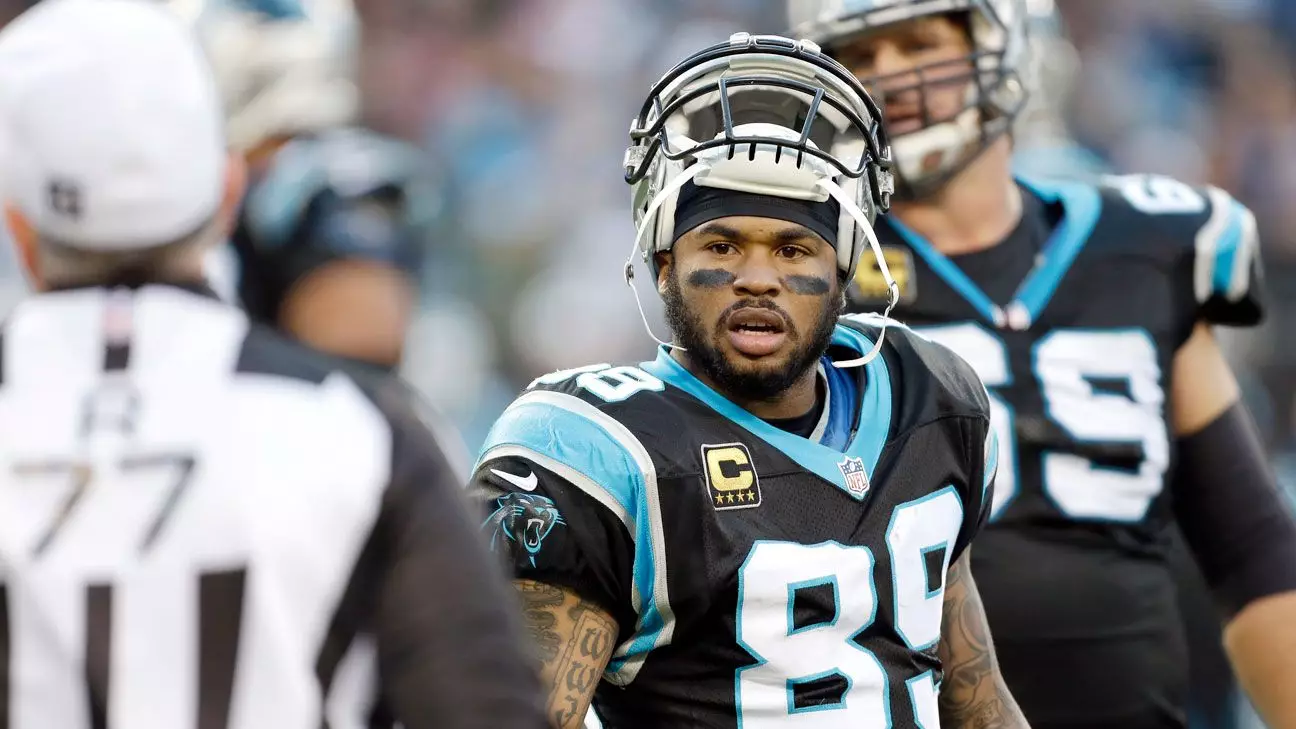In a surprising turn of events, tensions have flared between two Carolina Panthers legends, Steve Smith Sr. and Cam Newton, following comments made by Newton about the franchise’s culture prior to his arrival in 2011. In a candid interview, Newton expressed a rather harsh assessment of the team’s mentality, referring to his former teammates as “losers.” This statement ignited a firestorm of reactions, particularly from Smith, who has long been a voice of authority regarding the Panthers and their history.
Cam Newton, who was drafted first overall by the Panthers, has never shied away from the spotlight. During a recent episode of “The Travis Hunter Show,” he discussed the pressures that come with being the top draft pick, reflecting on his own experiences when he joined a team that had just finished a devastating 2-14 season. “I went into a locker room of losers,” he said, suggesting that the mentality of the players was a significant impediment to success. This statement was not only controversial but also deeply personal for many former Panthers, especially Smith, who felt it undermined the hard work and struggles of the team they both represented.
Steve Smith Sr., recognized as one of the most impactful wide receivers in NFL history and a notable figure in Panthers lore, did not take Newton’s remarks lightly. In an impassioned response, he took to social media to express his disappointment. Smith pointed out that the locker room comprised 52 other players, emphasizing that denigrating an entire team’s commitment to the game is not only disrespectful but also unjust. Smith’s confrontation was not just a defense of his teammates but also a reflection of his own pride and investment in the team’s legacy.
In subsequent posts, Smith implicitly acknowledged the Panthers’ struggles by referencing the 2-14 record but emphasized that his fellow players were hard-working professionals, all deserving of respect. He articulated a sentiment that resonates with many athletes — one of loyalty to the brotherhood forged on the field, regardless of the outcome of the games played. This response draws attention to the underlying tension between success and accountability within professional sports: is it fair to label a team as “losers” when every member has invested considerable effort into the game?
Newton’s Legacy and the Bigger Picture
While Newton’s remarks may have come off as brash, they also highlight the immense pressure that top draft picks often face. With expectations soaring, athletes in such positions can feel isolated, leading them to make statements that, while truthful from their perspective, can hurt the collective identity of the franchise. Newton’s accomplishments with the Panthers, from winning the AP Offensive Rookie of the Year to leading them to a Super Bowl appearance, stand as a testament to his capabilities as a player, yet they also set a high bar for team success.
However, his choice of words may raise questions about his understanding of the impact they can have on team dynamics. Such public confrontations risk overshadowing the camaraderie formed among players over years of competition. As leaders on and off the field, both Smith and Newton must recognize the immense privilege they have to influence narratives that could either uplift or alienate their fellow players and the fanbase.
This feud illustrates a broader conversation about accountability and respect in sports culture. There exists a delicate balance between candidness and diplomacy; athletes often grapple with the repercussions of their words years after they’ve left the playing field. Fans and analysts alike are left to ponder: is it acceptable for a former player to openly disparage his past teammates, regardless of the context?
As Smith and Newton navigate this ongoing discourse, their actions may serve as a lesson for current and aspiring athletes about the weight of their words. In a world fueled by social media and instant reactions, maintaining respect for one’s colleagues—even when critiquing the past—is of utmost importance. Ultimately, the legacy of the Carolina Panthers as a franchise will greatly depend on how these figures communicate both their triumphs and their struggles, and the respect they show towards those who have shared the journey with them.


Leave a Reply